
This review may contain spoilers
Far too many toxic elements in the story
Spoiler heavy. This could have been so much better. Cinematography and technical aspects were good. The mismatched friendship had promise at the beginning and could have been a good start but only to a completely different story. Ai Di's story could have been great if he'd been allowed to stay away and rebuild a better life.Instead we start with someone barely above the legal age limit but very inexperienced in relationships and an older mafia underling (actors' age gap is 10 years and if the novel made the characters' less it wasn't mentioned in the series) who really should know better. He gives some token resistance on age - enough to show he understands that it is wrong - and then dives in. He doesn't even do that on the risks his criminal family will bring to the kid he repeatedly calls Kiddo.
Add in (fake) amnesia, (not fake) short term memory loss (which they keep saying is temporary but show no signs of that), time jump for prison cause the kid was coerced by the mafia to take the blame for a murder he didn't commit*, another young man who gets free from the mafia but is carried back in literally kicking and screaming but it's all fantastic because the man who dicked him around for years finally decided to kiss him.
Seriously? All for an absolute kitchen sink mess of a plot which says EVERYTHING will be forgiven for a first love.
The fandom really will ignore any red flag situation or behaviour if there are cute boys kissing.
*Don't give me that BS that this was somehow ok, or it justified the character's age - he was literally too young to be given an adult sentence. Stop and think that through.
He wasn't old enough for the rest of it either.
And going to jail in the name of "love"? That's not romantic, it's part of an abuse dynamic. Oh but cute boys kiss. Swoon.
Now add in that the murder rap will follow this kid for the ENTIRE REST OF HIS LIFE. It's not just a few years lost, or his university and career plans.
I get that many fans like a lot of Drama and Tension to heighten the effect of the resolution. And yes, abuse dynamics are an easy way of increasing drama and tension within a relationship. But are those the narratives we really want to be embracing wholeheartedly when there are so many more ways to make compelling drama?
Like I said at the beginning, both the mismatched friendship and Ai Di's story had a lot of potential. They could have taken other paths, ones without abuse dynamics, to create good story and you would have loved it just as much.
Was this review helpful to you?
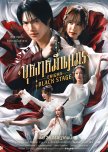
they tried too hard
The tight, compact story-telling of the first Enigma with its brilliant use of sound, lighting, well-contextualised props and acting was abandoned in this 'sequel.' Instead it takes on far too much and flops around from this to that to something else. Many of its half-hearted social critiques were superficial cliches and just a way to get around plot holes. Like all the events which really should have stopped the contest being ignored with a quick "the show must go on'. That's not commentary on the industry, that's lazy writing.And the amount of exposition? All of those long monologues may have been necessary to cram that much into five episodes, but it should have been an obvious signpost to the writers that they needed to drop some story lines and focus on one or two. They know how to do this, why didn't they here?
There were also several moments where it felt like they took violence and gore as an easy way out. It gets a reaction though, and that's popular.
Maybe the overload of things to react to is an attraction?
Acting was competent from the best known actors but not stellar; I've seen far better from all of them. JingJing nailed her late dramatic scene, but why her character was as she was? They didn't even try to explain that, let alone explore it (contrast Namsine in the first). Jew and MyDay were nothing more than cliches, chasing fame for I don't know, the sake of fame. They had specialisations in spell-casting rather than characterisation. I think Namtan was miscast, really rate her as an actress and this is the first I've seen her in where she didn't convince me - Anya had mood swings not nuance. That's on the writers and directors. Not sold on Toey's performance either. And they only played to Pompam's strengths briefly and late. (Also expected Anya to have a more substantial and interesting role. They obviously told a different story here than they were hinting at with the final scene of the first Enigma and that's fine, but they really dropped the ball with her character.)
Between the reality show framing and all of the jumping around from one thing to another, I found it difficult to stay immersed in the suspense and horror build-ups. That made it easy to notice the short-comings. Maybe it works better for those immersed in the broken attention and rapid focus changes of today's social media? I don't know. It didn't work for me.
Edit: The comparison to short form social media feels apt: a surfeit of small things formatted to grab attention and evoke big emotional reactions without taking time to explore and understand them. It's exciting on the surface. If that's what you're looking for, fill your boots. There's plenty of that here.
Was this review helpful to you?
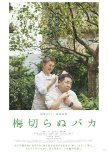
Acceptance of difference and problems caused by those quick to judge
Cho-san has both learning disabilities and autism, needs his routines and works in a supported facility. He also has a great mum and difficult neighbours.Every bit of this rings true with my experience working and volunteering with people with learning disabilities, including the complicated decisions aging parents make to ensure their sons and daughters are settled.
Please don't watch this to be heart-warmed. Please watch this to better understand a bit more of the extra difficulties so unnecessarily created by those who see difference and look for reasons to condemn.
(The tags currently include mental illness. There is no mental illness depicted in this film. The distress felt by Cho-san and some of the housemates when confronted by loud noises, angry neighbours or disruption to their routine is part of their learning disabilities, not mental illness. These are distinct things.)
Was this review helpful to you?

this could have been so much more
The first half was fan service in search of a plot, just GMMTV cashing in on nostalgia and the fantasies of shippers. And then it found some, and we had a glimpse of what could have been with Tam and Phi acknowledging the pain of their break-up. Imagine if Aof at his best had directed this and the writers had put more effort in, they could have made something approaching the emotional maturity, depth and realism of Moonlight Chicken. Imagine if they had really worked with that 'worst decision of my life' aspect and grappled with the pain which came from it. This could have been brilliant, another series which matures BL into real adulthood.Singto and Krist are skilled enough to have done their part in making this richer. They sure as hell tried to in the brief opportunities they were allowed. Aof was script advisor as well as producer, should he get credit for salvaging something or criticism here?
Instead of that depth, the plot flounders around with mediocre comedy and a half-baked GL side-plot (kudos to Jamie and Earn for trying to make something of that) with a complication which should have been binned. It dips into lazy lakorn cliches, then launches itself into an out of nowhere implausible twist which was ridiculous rather than lazy, and throws in a new twist per episode to stretch it out to the grand total of... 10. (I'm a fan of Thai genre-mixing and love a good lakorn but they got it badly wrong here.)
It's hard to do slice of life well, but imagine if they had made something special from that instead of using it as filler between the snogs. This had so much potential and they just didn't bother.
Was the annoying bullying from Tae a nod to the bullying hazing in SOTUS? Or was it just there because it was an easy and cliched plot device for the writers? They were clever in using the many flashbacks to up the ratio of fan service with a minimum of extra plot. War of Y did something similar though, so perhaps even that wasn't original. It will make money for the corporations behind it though, and that's the bottom line after all.
The end result will thrill the shippers. There's a lot of kissing and that will carry many through. But what this premise from these actors could have been, if only the creators had bothered to try.
Was this review helpful to you?
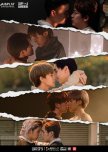
This review may contain spoilers
Club Friday - BL Industry
This is more or less a niche version of Club Friday, the long-running anthology series - multiple stand alone minis branded as a unit, with plots full of betrayal and angst and infidelity - originating with callers' stories to a phone-in radio program and thus purported to be 'based on real stories'. I'm not a Club Friday fan, the ones I've seen are condensed versions of the side plots I put up with for the parts I enjoy in lakorns. The series has been running forever though, obviously many like it.So I wasn't surprised by the sparsity of HEAs in War of Y or how it often felt heavy and over-bearing, without the zing and zip of a good lakorn, just the angst.
Using the Club Friday approach to 'expose' secrets of the BL industry while also reveling in many of them makes some sort of sense. It also clutters up what was true, what was invented and what was exaggerated for the sake of Drama. Some were clear lakorn stereotypes, like making a middle-aged woman the villainess in one, but yeah, there probably are managers like that and it does seem to be a woman and katoey-dominated field so IDK.
There were times I felt like I should stop supporting the industry altogether, which is a difficult rabbit hole to go down because it doesn't ever end. Corporate entertainment industries exploit actors and musicians, marketing and controlling them as products in order to manipulate and exploit fans' feelings and wallets. Like that Big Spender thing in one of War of Y's stories. If that's not invented, it's literally manipulating fans into directly giving money to already-wealthy corporations, not because their products are any good but because a young actor is doing his job of invoking fans' feelings well. Same with pay-to-vote schemes.
I don't know how much of the toxicity they depicted from the fandom side was accurate. I've seen enough to fear that this largely was. Why is it tolerated? Because that's how social media works these days? Because both haters and defenders get attention and a dopamine rush and that keeps it all going? Because young people get their own sense of self wrapped up with parasocial strangers so it all becomes very personal? I don't know. But the toll it must take on young actors and musicians, being tossed around for other people's agendas. It doesn't have to be this way. Isolate those doing it, don't give them oxygen or reward them with your attention. It's what they're after.
There was a lot of NC. It was manipulatively clever to effectively double up on NC scenes by including those from the fake series being filmed, as well as fake content, as well as the oh they're secretly in love after all scenes, including straight boys going bi/gay for you ::face palm::, and then throw in a few comments criticising the emphasis on NC over plot (you literally did exactly that), or show characters being uncomfortable about doing them.
Where they were just hooking up, and it seemed like it was sex for sex's sake, that was at least believable within the story. But of course every story had to fuel shippers' dreams that their treasured fantasies about strangers' orientations and sex lives might actually be true even while it depicted the manufactured nature of fan service and shipped couples.
For myself too much angst, poor editing/writing and the true/not true approach meant that even when I did get caught up in a character's story line, when it came to the romances with their ships my brain bailed right out. These are actors trying to make careers and doing what they're told to do, playing actors trying to make careers and doing what they're told to do, all of it driven by people looking to make money from fans chasing fantasies about strangers' sexuality.
There were quiet moments, especially in the first two stories, which were quite good and *some* of the acting was impressive. Seng (Pan) and Paper (Fern) were the two who stood out most for me. But when the drama got loud and messy, the editing and scripting often did as well and the overall results suffered. I'm not sure why I put myself through this.
tl:dr Support actors for doing their jobs well under demanding circumstances, but don't buy into the corporate shite or make the circumstances more difficult for them. They're dealing with enough already. Fans can do at least this much. Corporations and managers might contractually 'own' them, but we're not entitled to act like we do as well.
Was this review helpful to you?
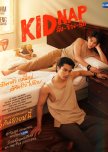
would have been so much more if they had tried to do less
The early episodes held such promise - bouncing from one crime lakorn trope to another, then swerving (because Thailand, and I love this) into comedy series and developing a beautiful care and trauma focus with Q’s sleepwalking, anchored by Ohm’s ability to show quiet emotion through his face and voice.But the crime lakorn never became more than a string of tropes, ungrounded and unintegrated, lazily thrown together in pursuit of plot, motivations and filling time. Enough to carry an entire side plot of a 30 hour lakorn but merely surface level tension here. Veteran actors Lift Supoj and Pym Pympan gave competent but generic performances, they could have done them in their sleep. Tae Pitisak was at least given a decent monologue to work with and he is excellent with a good monologue.
This is the first time I've felt my familiarity with lakorn tropes and actors got in the way of watching either a lakorn or series. Their characters were stock roles so I was watching actors go through well-known motions. Papang though, he’s not cut out for a tough guy. Give him more roles please, but not this.
I wish I had seen this earlier, before I got the hang of lakorns and their tropes. It might have worked better for me as I wouldn't have realised how paint by numbers it was. Or maybe I would have just been casting about for an explanation within my experience. The series support characters were generic too.
The BL was also trope-heavy, though on a par for recent GMMTV fare and Ohm can elevate anything through the strength of his acting and facial expressions. Much praise for him. No criticism of Leng, his delivery suited his character. And certainly none for the two of them together or their chemistry. The only thing lacking there was years of fans building up fantasies about their boys, the kind which lets shippers bypass everything else and fill in the gaps with their own emotions.
But all of those tropes, that was a lot of weight for the BL to labour under, and through the middle it was more cliches than unique characters. That’s on the writers, Ohm and Leng did their best to try to make them more. (How often am I writing something like this these days? GMMTV, get it back together. Please.)
This had one excellent idea which it developed and then set aside - the sleepwalking, with its mix of care and trauma. Anchored of course by the quality of Ohm’s performance. It seemed a promising start, especially with the kindness and humour it mixed in, the perfect recipe for Thailand’s fantastic way of tempering trauma and difficult subject matter.
They did revisit it in the last two episodes, with the characters having matured. They got the emotions right in that, although it felt somewhat discconected and …. Still trying to figure out what was missing there for me. It might come back to integration of the story lines and their many elements.
The series also had what should have been solid ideas around sacrifice, except they chopped it all into too many pieces and scattered it about, dissipating its emotion. That’s my primary criticism, this series couldn’t be bothered to truly develop and explore any of its ideas. I have to mentally recompile it to appreciate what they were trying to do, it just kept bouncing from one bit to another.
It’s like the many writers (too many cooks perhaps?) didn’t have the courage to properly develop and explore any of their story-lines, or understand which ones were its strengths - everything was resolved too quickly and easily. This would have been so much more if they had tried to do less.
So this is yet another What might have been, with this premise and these actors, if only the creators had done their part better. I very much want that tender care/trauma laced with comedy series the beginning seemed to promise. Choose a few lakorn tropes carefully to develop the themes of sacrifice and the questions it asks around that. And above all, have the courage to stay with those emotions. Thailand does that so well.
What this might have been, with Ohm and Leng and that potential.
Was this review helpful to you?

Look for the larger themes, and recognise where it's spoof
What they set out to do was ambitious and hard to pull off. Not just that it's structured as three different series/lakorn styles, but two of them also include comedic parody. That's why the first is so OTT, it's a rollicking exaggerated for humour piss-take of exaggerated for emotion lakorns, Club Friday, and tropes. If you're familiar with that part of Thai television culture, some of its comedy is laugh out loud funny. If you're not, it probably just comes across as annoying.The second story foregoes that energy to give too much time to a cliched bickering/fake dating scenario. Its strength IMO are the interactions between Pim and Neung as they both learn from their mistakes and each other. Yes, Pim repeats some of hers. It's how the entirety is structured and if she hadn't it would have been A Son and his Mae, instead of three.
(I'm less certain about humour in the second story. Thames/Tevit is referred to as Mom Luang Tevit a couple of times - is he actually a great grandson of the king or are the mums taking the mick? The writers were having fun, as with his brothers calling him Tempura. The straight-boy playing gatoey assistant/confidant felt like parody too, though I won't argue for that one.)
The third story begins as spoof of youth series but leaves that quickly. It's the one which will be most familiar in feel to most western GMMTV fans. Film in particular was vibrant.
The three romances are the vehicle for the series' larger themes. Pay attention to that, because this is where it shines. Young people maturing and figuring themselves - and love - out, understanding their mothers and struggling to get their mothers to understand them, looking for the good intentions, but also learning that good intentions aren't enough. Complicated mothers getting it wrong but trying and doing it all for love, even when they misunderstand what's best.
The structure complicated what they set out to do. It's not perfect and these themes have been more gracefully explored elsewhere. But it has an enormous, generous heart and a charm of its very own.
Was this review helpful to you?
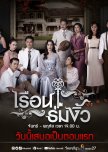
Addictive emotional work-out
Technically, much of this is excellent. I'm going to put my But's... in comments hidden by a spoiler tag because even alluding to them vaguely gives things away.Since this is available via GagaOOLala, there are gay characters and many English-orientated viewers tend to equate Thailand with BL, I'll say this very clearly at the top - this is NOT BL. If you want BL, look elsewhere. If you need to see male actors acting in intimate ways, expect a lot of fast-forwarding or just look elsewhere, there are plenty of other choices. A central character is gay and it very much matters that he is gay and closeted in a predominately het world, but this isn't a gay story. Some of the choices Gaga makes on what to stream confuse me, this is one. I watched it in part because I'm interested in how each Thai channel has a somewhat different flavour to their lakorns and I hadn't run into any from Channel 8 before.
It is a tropey lakorn. The first five hours alone gave us an entire lakorn's worth (41 ep x 45 min version on Gaga). If you don't know lakorn tropes, it's probably best to start with something else. This one lays them on thick and fast and it really helps to understand context. Like the way historical lakorns criticise out-dated attitudes while also mining them for melodrama. Things like men controlling women, masters controlling servants, those with wealth and status controlling those without.
Within that framework, the acting is excellent. Everyone does exactly what they're supposed to and does it very well. There are quieter moments of significant emotion, all of it intensified by the exaggeration of what's led up to it.
There were editing choices which undermined that at times, but for the most part it delivers. Its pacing is a big part of making that work. It ricochets from one thing to another and changes focus several times - tropey horror to tropey tropey tropey new mistress/2nd wife nightmare to forbidden romance to, well some of these will be spoilers so I'll stop :) - and that allows it to go in for BIG emotions without, for the most part, becoming overwhelming. IMO this isn't one to binge.
It is addictive though. I tried to drop it a few times and didn't succeed. Now that I'm through it, I'm not sure how I feel about that.
For nearly all of it, they got the emotional truths right - why characters do what they do - and that is always the key to a successful lakorn. This one packed in a dizzying array of complicated, often layered, emotional truths.*
They did drag it out though, like the writers were too addicted to throwing one more thing in.
Shifting to a comment so I can hide it under a spoiler. Will try to write it so it gives as little away as possible.
Was this review helpful to you?
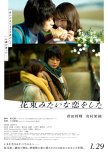
If you only watch one het love story this year...
I'm careful in what I watch by way of het romance and initially We Made a Beautiful Bouquet wasn't high up my list for this year's JFF Online. A J-drama fan I follow on social media had seen it before and I liked what he wrote about it so I gave it a go.It doesn't do the things I dislike about most het relationship story lines. The FL isn't cutesy or ditsy. Shared enthusiasms are central to the dynamic between the two characters and the framing is also balanced between their POVs. It's one of the most equal relationships I've seen. There's something else I want to compliment it on but that would be a spoiler.
All in all, it's an excellent film. Solid writing and acting so natural I managed to forget I was watching a film during some of it. Oh right, this isn't happening. If someone said, "I'm willing to watch one het love story this year" this is one of two I'd suggest.
Was this review helpful to you?

A series worth of feelings
This is a gentle, beautiful story of two high school girls and their feelings for each other. The lead actresses co-wrote and directed it. They're a couple in real life and their connection as friends and life partners shines through. It was lovely to spend some time with these engaging and charismatic characters.The writing on this is very clever. They were able to work a lot into the 38 minutes without it feeling rushed or incomplete. There's more of Mar & Lei's story to tell, but this was enough. Whether Ward and Klio return to these characters or start something new, I hope these talented writers/directors/actors have many more opportunities to share their vision and talent with us.
Was this review helpful to you?
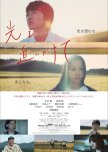
Realistic, grounded portrayal of young people and some of their difficulties
The film centres around two high school students, Maki and Akira, who are both a bit lost because parents and find friendship with each other. I didn't understand some of the symbolism decided on by other students but it was easy enough to just go with it. Perhaps it's a Japanese understanding, maybe it's idiosyncratic to the director. Motivations are consistent and clear, even when they're not explained straight away. Maki is acting out because of x, a boy does what he does because of y, Akira is kind.There are many small touches evoking place, like views of the countryside and the beautiful ice cream serving technique of a grandmother. It all feels very real and grounded. This is my favourite film of all the ones I've seen in this autumn's JFF+ Independent Cinema festival. If you like youth drama and film with realistic portrayals of the difficulties young people struggle with as they grow up, this is well worth seeking out. Maki especially is a character I'll remember and I hope to see Nagasawa Itsuki, Nakagawa Tsubasa and some of the others again.
Was this review helpful to you?
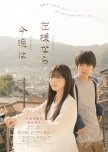
Gentle story of friendship and love
This wasn't anything fancy, just a simple and gentle story of friendship and love between a living person and a ghost. They told it very well. It has humour and genuinely touching, beautiful moments. The two leads were perfect for their roles.It was filmed in Onomichi and the last half hour or so conveys a strong sense of place in its own quiet, gentle way.
I was fortunate enough to catch this via the JFF+ Independent Cinema 2023 festival. This ends 31st October so it will likely be over before any finds my comments. It's worth looking for elsewhere and I hope to be able to spend time with it again.
Was this review helpful to you?

Deservedly well respected Hong Kong classic, with extra meaning for fans of Thai series
This is the film which means so much to Jim in Moonlight Chicken and by inference to screenwriter/director Aof. So not just a great recommendation for a beautiful film but also a way to more fully understand his character's inner life and the significance of the song he used for the opening theme.Comrades doesn't disappoint. It's set in crowded urban environments but much of it is tightly focused, concentrating on two characters at a time. A conversation in a narrow hall at a party, in a car, the McDonald's queue. Its story isn't complex and, like Moonlight Chicken, has few events external to the key relationships. I first wrote that there's more pain in Comrades but that's not true. Moonlight surrounds all of its pain with so much love while Comrades is far lonelier. Its main characters become close because they're all they have in this city.
The film is calm, gentle, and quietly poignant. It takes its time and it's well worth some of ours.
(Yay, other people have written better reviews finally. I was so noob here, not used to organising my thoughts for a review and still caught up in the emotions of MC. Really do intend to get around to watching Comrades:AALS again, and improving this here, but there's so much to watch I never get around to it.... Anyway, give hearts to the others and let my nonsense fall off the front page na :D It's a fantastic and beautiful film.)
Was this review helpful to you?

Spell-binding
This is a story about women.Parents having to deal with and overcome cultural homophobia is at its core, and there's a beautiful romance between men, but these complicated, determined women using whatever resources they can find to negotiate life within the constraints of cultural sexism carry the lakorn. Li is ferociously strong, Jia's knowledge of herbs is magic, Chan is whatever the moment needs, and sometimes that's a touch of comic relief, Bua's strength is in her gentleness, Pin is plucky and resourceful, Cai is always paying attention.
It's melodrama so everything is exaggerated. Settle into its rhythms, it's a wild ride and well worth it.
Was this review helpful to you?

This review may contain spoilers
Uplifting
I've seen this three times now. At 32 minutes, it's a beautiful pick-me-up for down days. Every time I see it, I find new interconnections in its meaning. The plot is simple enough but everything else intertwines.This is a small gem with many facets. One of the characters, Kei, is a painter whose home is filled with "her" work (a commenter on youtube credits them to Takuya Sugiyama). They're dynamic and vibrant and make a great setting for this story about creativity, authenticity and belief in oneself. Their confidence is everywhere in the flat. Kei is likewise visually striking, beautiful, stylish and charismatic.
Riko, the other main character, is in contrast to all of this. She is shy, inexperienced and still struggling to find her voice as a writer and, in many ways, who she really is herself.
Together they tell a gentle love story between two women, emphasising how the support of another can help you find confidence in yourself. It's ultimately about taking risks, both in love and art. As befits a story about a visual artist, there's a beautiful, sensuous love scene too, one many directors could learn from.
Was this review helpful to you?

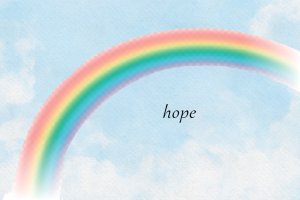
 1
1 4
4 1
1 1
1




















